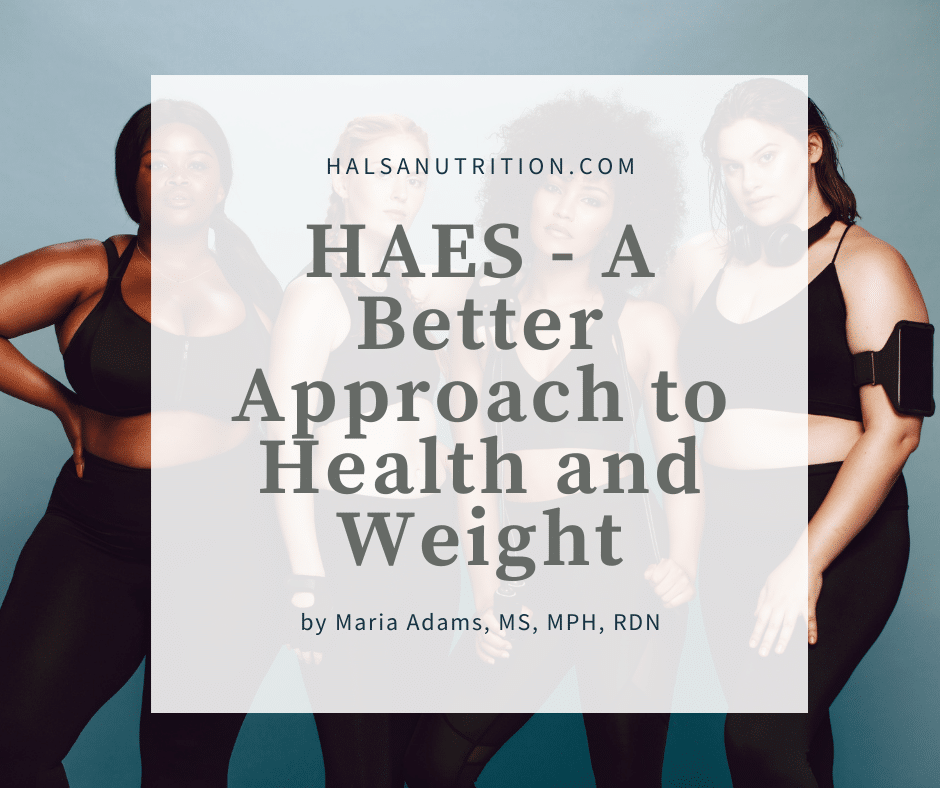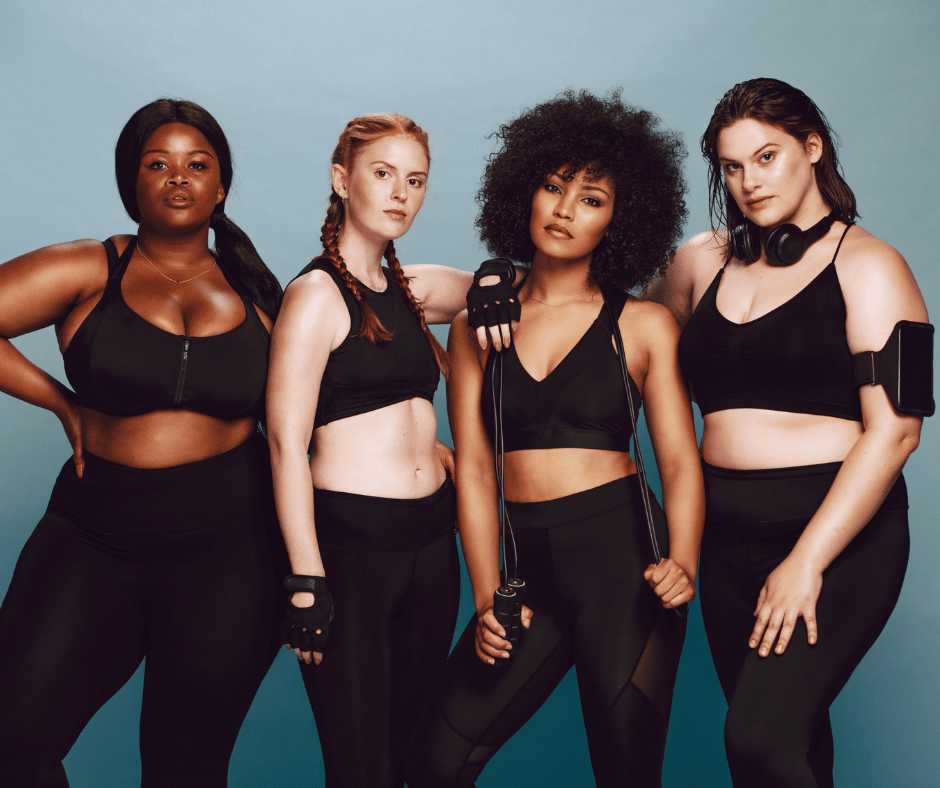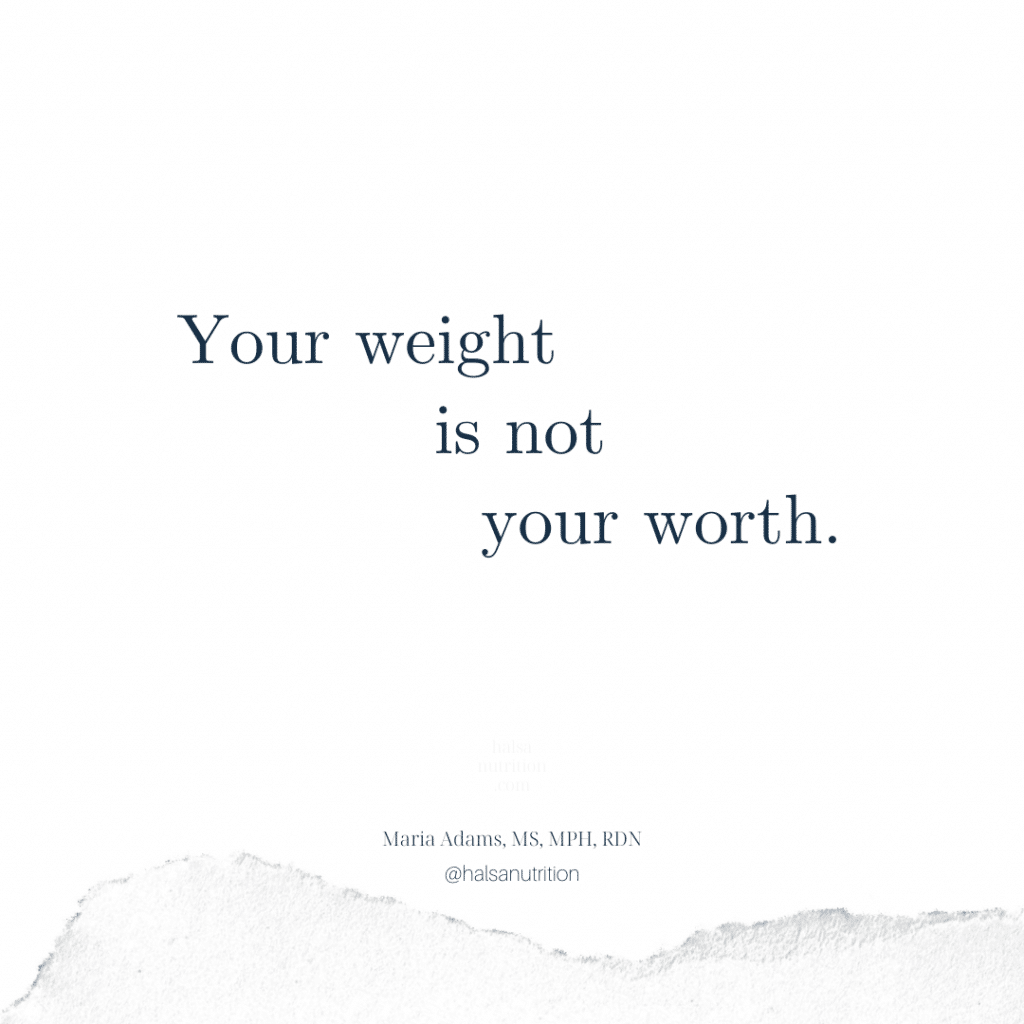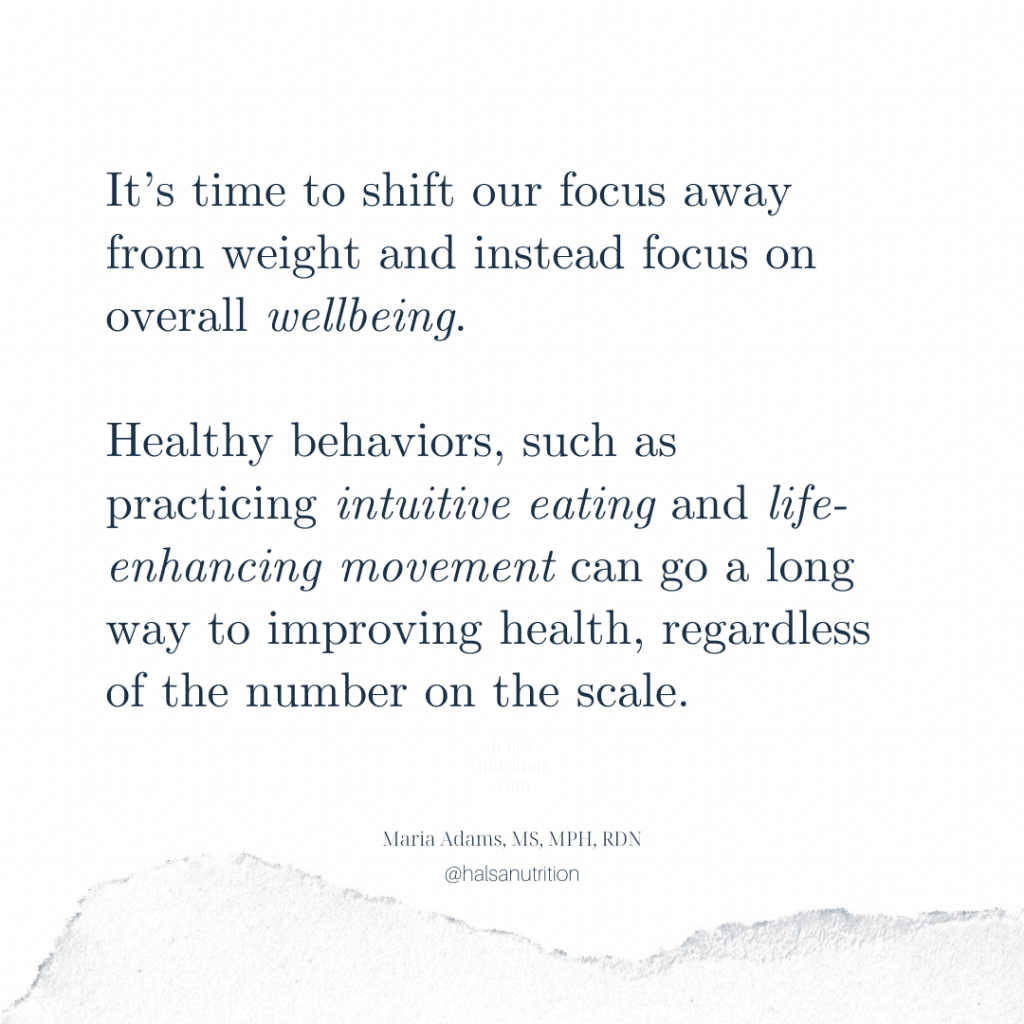
HAES – A Better Approach to Health and Weight
HAES ® is an approach to health that aims to shift our focus away from weight, help promote size acceptance, end weight discrimination, and reduce our obsession with weight loss.

HAES ® stands for Health at Every Size® and is a way of viewing health through a weight-neutral lens. In addition, it’s a social justice movement, helping to promote size acceptance, remove the stigma and bias that affects people in larger bodies, and reduce our cultural obsession with dieting and thinness. (ASDAH.org)
There are 5 principles of HAES:
- Weight Inclusivity
- Health Enhancement
- Eating for Wellbeing
- Respectful Care
- Life-Enhancing Movement
Why should I understand HAES?
HAES is relevant to everyone, regardless of body size. The research is clear that we can no longer go on viewing weight as having a direct impact on health as this generally does more harm than good.
Yes, there is a correlation between certain health conditions and weight, but correlation does not mean causation. In fact, it’s possible to be in a large body and be healthy. Likewise, it’s possible to have a low or “normal” body weight and be unhealthy.
(“Normal” is on quotations because the reality is we don’t really know what is normal for anyone. People come in all shapes and sizes. We do know that the height-weight tables and BMI index are both very flawed, more on the BMI further down.)
You Can Have Health at Any Size
With HAES we recognize that people can have health at any size; being a certain weight is not needed. That said, it’s also important to recognize that pursuing health is not a moral obligation, therefore, we need to respect people’s decisions and meet them where they are.
Here are three important concepts to help you understand HAES:
- Your weight is not your worth.
- Your weight doesn’t determine your health.
- Intentional weight loss diets generally don’t work in the long run.
Your Weight is Not Your Worth
Repeat this as many times as you need to. Write it down and come back to it when you need to. In our diet culture society, we have been taught that thinness is better than fatness. This is not true.

In addition to leading to the endless pursuit of weight loss and an obsessive focus on body image, this has led to discrimination and bias. Studies show that people in larger-sized bodies are more likely to be discriminated against because of their size, whether at work or at school. (Source) Even well-meaning healthcare professionals find themselves jumping to conclusions about people based on their size and therefore providing different treatments to people in larger bodies than those in “normal” sized bodies.
Sadly, weight stigma and bias are independent risk factors for poor health (Source). It’s time to end the stigma and bias around weight and body size.
Your Weight Doesn’t Determine Your Health
Then there is the whole problem of what weight even means.
Yes, there is a correlation between weight and certain health issues, but as mentioned earlier, correlation does not mean causation.
Weight is just one of many measurements that we have when it comes to assessing someone’s health. It’s also one that we have little control over.
In addition to diet, our weight is affected by factors such as genetics, sleep, movement, health status, medications, environmental factors, and weight stigma. It’s important to look at the big picture. One important and often overlooked aspect of health is the social determinants of health. These include access to healthcare, access to food and having enough food, education, employment, living environment and neighborhood, and social support. (Kaiser Family Foundation)
Moreover, the whole BMI scale is flawed! You may know one problem, which is that it doesn’t take into account muscle vs fat, age, or body frame. But there are even more issues than that. For one, it was a system created by a Belgian astronomer in the 1800s. At the time, it was a statistical exercise looking at population models and was not intended to be used to measure health. Not surprisingly, it was based solely on data from white, European men, which means it doesn’t take into account the diversity of our earth’s population! (Alissa Rumsey)
Other issues include that the cut-offs for what is considered “normal” vs “overweight”, etc., are arbitrary. In addition, those categories are misleading: one would assume that a lower weight is better, but in general, it’s the “underweight” category that has the highest risk of death. (Source). As we age, people in the “obese” category actually have the same risk as those in the “normal” category, while those in the “overweight” category have the lowest risk of death. (Source).
Intentional Weight Loss Diets Generally Don’t Work in the Long Run
In addition, the problem with focusing on weight and weight loss is that we don’t yet have a safe and effective way for people to lose weight. Research shows that around 95% of people who lose weight on an intentional weight loss diet regain it within 5 years. Moreover, around two-thirds of people regain more than they lost. (Christy Harrison)
We also know that the effects of yo-yo dieting can be more harmful than never trying to lose weight in the first place. Moreover, dieting is disordered eating. When we listen to an external guide instead of trusting our own inner wisdom, we are increasing our risk of developing an eating disorder. (Intuitive eating is the opposite. It reconnects us with our own inner wisdom and helps us learn to trust our bodies).
Take Away
It’s time to shift our focus away from weight and instead focus on overall wellbeing. Healthy behaviors, such as practicing intuitive eating and life-enhancing movement can go a long way to improving health, regardless of the number on the scale.
It’s time for an inclusive society that welcomes all, provides equal health care to everyone, and respects and values individual choices. It’s time for us all to adopt a HAES lens. Healthcare professionals especially need to lead the way. HAES is human-centered and the best way to reduce harm.
Resources
Websites:
- ASDAH
- The Original Intuitive Eating Pros (includes a worldwide directory of Certified Intuitive Eating Counselors)
Books:
Disclosure: The book links below are Amazon affiliate links. As an Amazon Associate, I earn from qualifying purchases.
- Anti-Diet by Christy Harrison, MPH, RD
- Body Kindness, by Rebecca Scritchfield, MS, RD
- The Body is Not an Apology by Sonya Renee Taylor
- How to Raise an Intuitive Eater, by Sumner Brooks MPH, RDN Amee Severson MPP-D, RDN
- Intuitive Eating, by Evelyn Tribole MS, RDN, CEDRD-S and Elyse Resch, MS, RDN, CEDRD-S
- Unapologetic Eating, by Alissa Rumsey, MS, RD

Leave a Reply